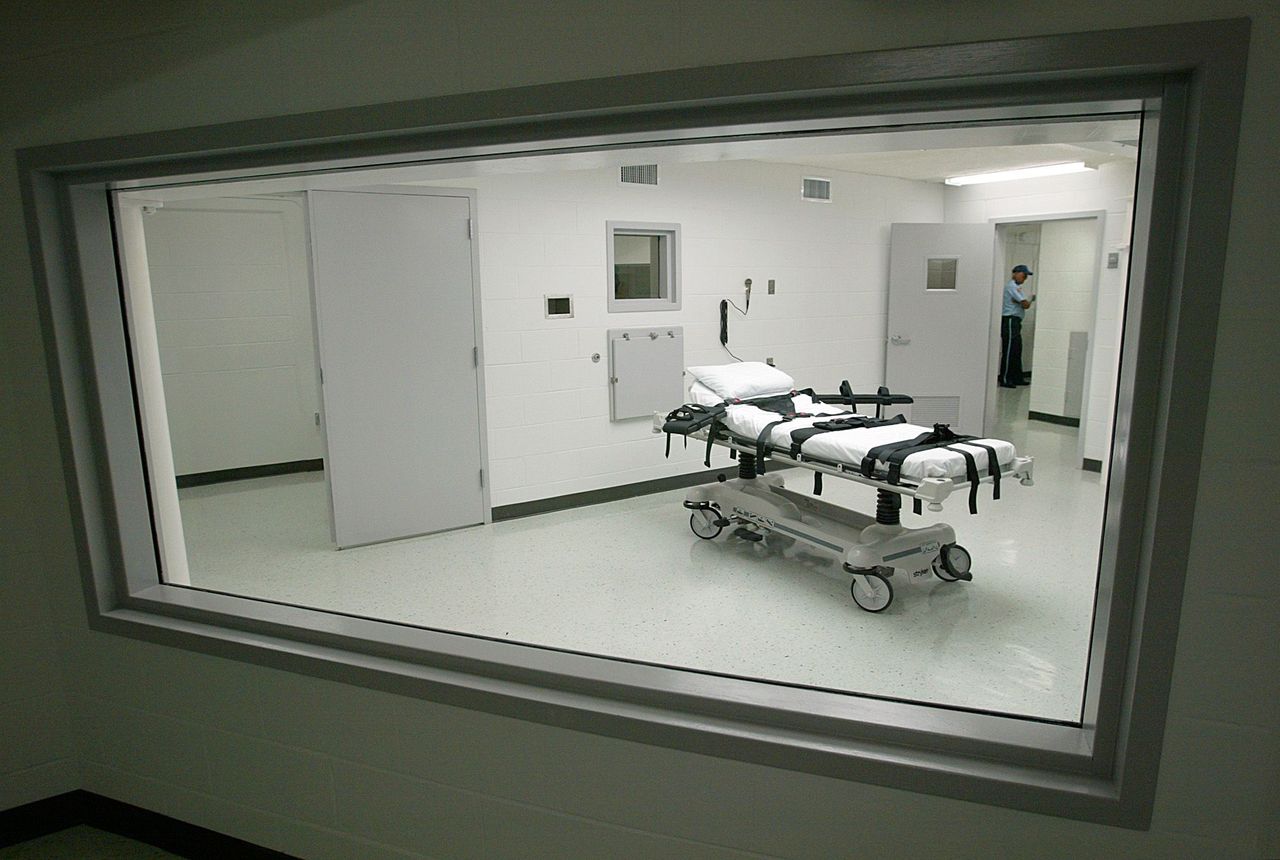Alabama death row inmate James Barber says he is not afraid to die
Alabama death row inmate James Edward Barber testified remotely by video Wednesday afternoon in his federal lawsuit that seeks to block his execution by lethal injection.
Barber testified from the warden’s office at Holman Correctional Facility in Atmore, where he is scheduled to be executed during a 30-hour period that starts July 20.
“Are you afraid to die?” attorney Chris Barnes asked Barber.
Barber said he was not afraid because of a promise he said was made a little more than two decades ago.
“God promised I would receive eternal life, so death is just a transition to me,” Barber said.
That was the first of only a handful of questions Barber was asked during the hearing by Chief District Judge Emily C. Marks in the federal courthouse in Montgomery. Barber, wearing a light colored button-up shirt, sat through more than two hours of testimony and oral arguments before he was sworn in to testify. Barber thanked the judge for allowing him to testify remotely.
Marks did not immediately make a ruling on Barber’s motion for a preliminary injunction to stop his execution by lethal injection. Stephen Spector, an attorney for Barber, told the judge that Barber has never disputed the validity of his impending execution, only the method.
Barber’s lawsuit, citing problems with Alabama’s last three scheduled executions, claims lethal injection would violate the Eighth Amendment ban on cruel and unusual punishments by causing him unnecessary pain, a claim based on the state’s last three scheduled executions.
The execution of Joe Nathan James Jr., took more than three hours to complete in July 2022 because of problems accessing James’ veins. The two executions scheduled since then, of Alan Eugene Miller in September and Kenneth Eugene Smith in November, were called off in process because the execution team was unable to establish IV connections. Smith claims in his lawsuit that he was poked and prodded for almost two hours, causing excruciating pain.
Barber’s lawsuit claims Alabama has an alternative to lethal injection — nitrogen hypoxia — that would pose a lower risk of pain and suffering. The Legislature legalized nitrogen hypoxia executions in 2018. But the Alabama Department of Corrections has said it is not ready to use the method, which has never been used in any state.
During today’s hearing, Marks asked Richard Anderson, an attorney for the state, if nitrogen hypoxia would be ready in time for Barber’s scheduled execution. Anderson said it would not. The state has asked the judge to dismiss Barber’s lawsuit.
Barber was sentenced to death in 2004 for the murder of Dorothy Epps in 2001. Barber beat the 75-year-old woman to death with his fists and a claw hammer in her home in Madison County.
Barnes asked Barber what he knew about the execution of James and the attempted executions of Miller and Smith. Barber mentioned the widely reported problems with setting up the IV connections in all three cases. He mentioned that James did not appear to be conscious during the execution. Barber said he did not know what happened.
“I got everything second-hand,” Barber said.
Barber testified that Smith had a “really bad, bad looking wound” from where the execution team tried to access a vein near his collarbone.
After the Smith execution failed, Gov. Kay Ivey called for a pause in executions so the Alabama Department of Corrections could conduct a review of the procedure. The review ended in February, clearing the way for executions to resume. Barber’s would be the first since the review.
Barnes asked Barber if medical staff had ever had problems tapping his veins for a blood sample. Barber said he was stuck with a needle about eight times at Donaldson Correctional Facility in 2004.
On cross-examination, Anderson asked Barber if he filed a civil rights lawsuit over that incident. Barber said he did not. Barber also testified, in response to a question from Anderson, that there were times when he had no problem giving blood samples.
After his testimony, Barber asked Marks if he could be excused for the rest of the hearing because sitting in the chair was aggravating a pain in his hip. Marks excused him.
